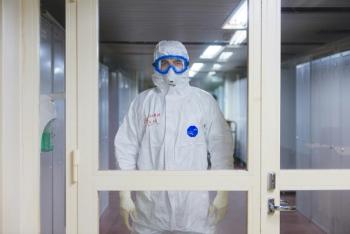
How Has the Ebola Virus Response Impacted CDC's Response to Zika?
Stephen Redd, MD (RADM, USPHS), Director of the Office of Public Health Preparedness and Response at the Centers for Disease Control and Prevention (CDC) explains what the CDC learned from responding to the Ebola outbreak and how this has impacted the response to the Zika virus.
Stephen Redd, MD (RADM, USPHS), Director of the Office of Public Health Preparedness and Response (OPHPR) at the Centers for Disease Control and Prevention (CDC) explains what the CDC learned from responding to the Ebola outbreak and how this has impacted the response to the Zika virus.
Interview Transcript (slightly modified for readability):
“In the
The disease was then identified in Brazil in May of 2015 and what happened after that was really unpredictable and unforeseeable. That was reports of very severe birth defects in areas that the virus had been recognized as being transmitted. [They reported] a very unusual type of microcephaly, different from normal microcephaly. This is a very particular type of microcephaly where the brain of these babies is actually destroyed and the skull collapses on itself. This is the most severe form of the birth defect associated with Zika.
This is the first mosquito-borne disease ever to cause a birth defect. It’s the first infectious disease to be recognized as causing a birth defect in 50 years. And so, the ability to foresee this and have all the things needed in place to respond weren’t in place.
Some of the elements of the
This has been the most complicated response that CDC has been involved in. There are more different disciplines within CDC that have to be brought to bear. We haven’t actually ever been involved in an emergency response that involved our birth defects center. We’ve got birth defects, we’ve got vector-borne disease, we’ve got the groups that develop laboratory diagnostic tests… We also have the group that works on sexual transmission because the virus can be sexually transmitted. This is bringing a lot of parts of CDC together and really something that’s needed to have all of the aspects of expertise available to be able to respond.”
Newsletter
Stay ahead of emerging infectious disease threats with expert insights and breaking research. Subscribe now to get updates delivered straight to your inbox.
































































































































